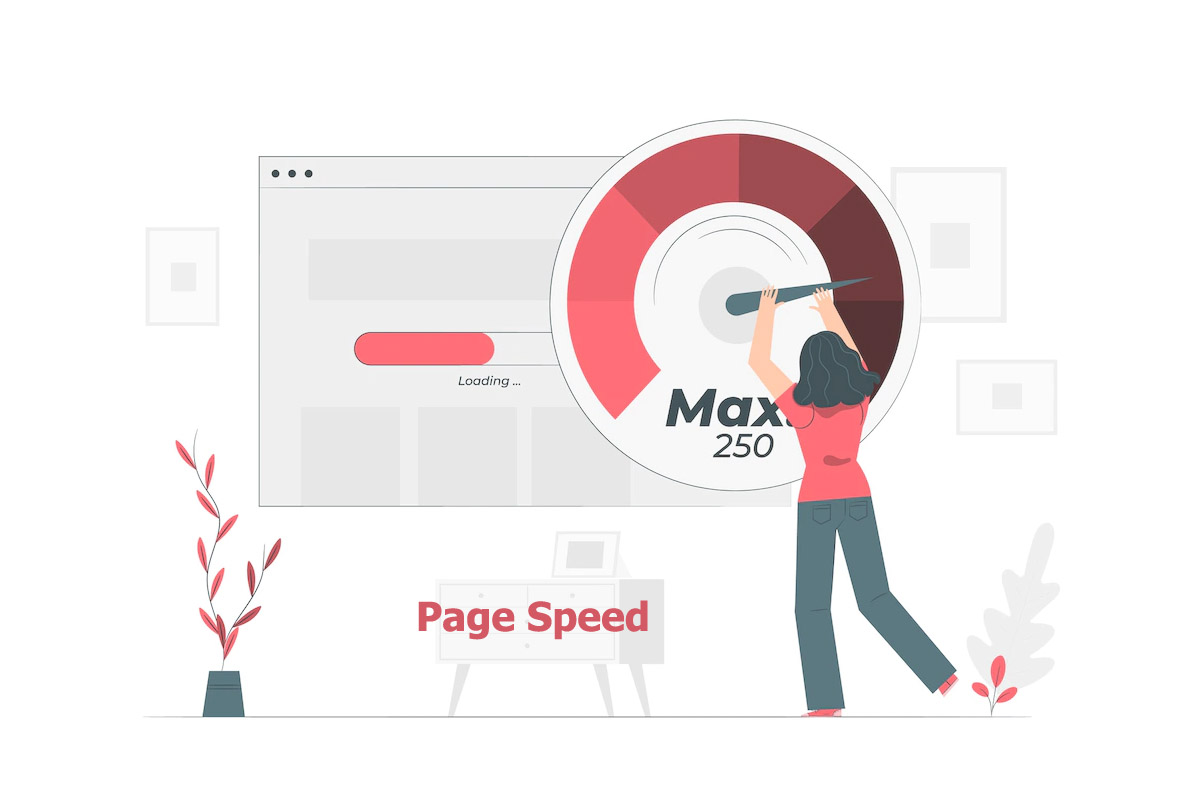How to Load Page Speed Faster?
Introduction
For page speed, you must understand how the metrics work and the factors influencing page loading time. To avoid bounce rates and increase user engagement, the website needs to load quickly, or else people will bounce back from your website and can visit your competitors’ websites. So you need to work on your website speed. People don’t like waiting for your website to load for a long duration.
Less loading time will increase the user experience and boost the website’s search engine ranking. In this article, we will mention what exactly page ranking is. Why it is essential and how to avoid bounce rates and decrease page loading time.
Importance of Page Speed
Every second counts when you talk about page speed. Even google research shows that if the page loading time goes from 1 second to 3 seconds, the bounce rate increases by 30% and people tend to leave your page.
Page speed plays a crucial in SEO (Search engine optimization). Therefore, Google considers every little thing when deciding to rank a page. And also, page speed is essential for ranking both on desktop and mobile devices.
Another thing that is affected due to page speed is professionalism. If your website takes longer to load, your brand will look unprofessional, unauthorized and unreliable. So if you want your website to be highly effective, you need to work on your page speed. Check your page’s current performance right now.
How to Improve Page Speed?
Now you know the importance of page speed. Let us know if the website has any loading time issues. See how you can test the site performance and work to improve this critical metric. Let us quickly see how we can make your website faster:
Select the Good Performance Optimized Hosting Solution
Many of us make a mistake by choosing mediocre hosting to get a lower monthly rate. This is the worst thing you can do for your website. Cheap hosting means cheap performance. Unfortunately, this also means you share multiple resources between multiple websites on an overloaded server. Obviously, your website speed decreases.
It would help if you used performance-focused hosting solutions so you could have robust platform designs for speed. Most of the time, these providers don’t have shared hosting, so you don’t need to worry about other websites draining your resources.
Compress Images of your Website
Images are a great way to showcase your website, especially with high quality and good images, but the drawback is that it will delay your page loading time. So to improve your page speed is to compress the image size.
When you reduce the size of the image, eventually, the weight of the image decreases, and the page speed improves. In addition, many plugins are present online that can optimize the image. These plugins will reduce the image’s size without affecting the picture’s quality.
Cache your Pages – Improves Page Speed
Caching the web pages is the most effective way to improve page speed. It requires fewer resources and can help your website lower the time for the first byte (TTFB). There are many ways to cache your website. You can do it at a server level which means your host will do this for you, and you don’t need to do anything.
W3 total cache is a free plugin for WordPress. This plugin will make caching for your website easily and quickly. Once you install the plugin, you just need to enable it. Go to the setting > page cache and select enable the option.
Reduce the Redirects
More redirects can also affect the speed of the page. This is because every time a page redirects somewhere else, it will prolong the HTTP request and response process.
Doubtless, redirection is necessary for some scenarios. Suppose, for example; you are moving your website to a new domain. So eliminating unnecessary redirects on your site can result in significantly lower page loading time.

